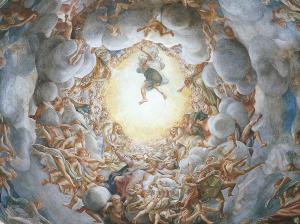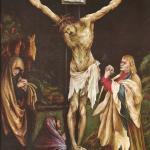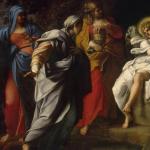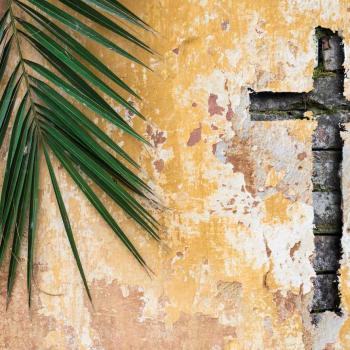The story of my uncle
My uncle Mario was an exceedingly talented musician and a warrior. He was diagnosed with an aggressive cancer about five years ago. After a long and arduous fight with this terrible disease, my uncle passed from this life to the next. He was only 60 years old.
Like any of us, his life was filled with beautiful and sad experiences. He married once and divorced shortly afterwards. I was never really close to him but I always admired him for his musical talent. His true love was music. At least that was my perception. He loved singing ballads and inspiring his audience to dance. Every time the side of my dad’s family gathered for a party or a dinner it always concluded with a mini-concert. Some would sing, other would dance but everyone had a blast.
About five years ago, while he was in town to get some work done, he became very ill. My father and I took him to the Emergency Room. By the look on his face it seemed obvious that he was experiencing excruciating pain. He could barely talk or breathe, for that matter. His facial expressions announced the suffering and pain his mouth couldn’t pronounce. Though it was impossible to hide the torment within, he remained remarkably calm. He was serene. Immediately after bring checked in he was given medication, which helped immensely.
We stayed there all night as the nurses drew blood and the doctor examined the lab results. I reached down my pocket and grabbed my rosary. It was about three in the morning. With my eyes barely staying open and my mouth all dried up I began meditating on the Sorrowful Mysteries as I offered up the rosary for my uncle. Later that morning he was discharged without being entirely certain of his diagnosis. I remember a conversation on kidney stones. Nothing about cancer. The doctor did urge him to follow up in a week with his primary care physician.
He went back to Mexico shortly after this and months later we received the news that he was diagnosed with cancer. He was confident he would overcome it. In fact, he didn’t appear to be overly concerned about it. My family said some prayers for him. Part of our prayer involved asking God to heal him. However, our main prayer for him was for his return to the Catholic Church or at the very least, a return to a belief in Jesus Christ as his Lord and Savior. Sometime in his adult life he stopped going to Mass and subsequently abandoned the Catholic faith entirely. It’s not that he left the Church and became atheist. I was never entirely sure what he believed in but he was definitely a spiritual person. I believe it was some form of New Age and/or agnosticism.
Growing up Catholic
My dad and uncle grew up Catholic. They also grew up in a highly dysfunctional home. My grandfather drank excessively all day and every night while my grandmother, a very pious woman, took care of the housework and looked after the education of their children. They married when they were still in their teens. My grandfather’s alcoholism and machismo inflicted much pain into their relationship. This affected the children even more. I believe this is why my grandmother became so tough and at times rigid. At least this is what I’ve heard. The only memories I have of her are all very positive. Bless her heart! My grandfather sobered up the year I was born. They both worked on their relationship and got closer to God. But the damage was done. Every single one of my uncles and aunt left the Catholic Church sometime in their adult life. During his final moments, my uncle refused to see a priest and he made it very clear that he didn’t want a Christian burial. Many of his Catholic relatives began to wonder why on earth there was no funeral, a special novena or the Sacrifice of the Mass offered for him.
“Extra ecclesiam nulla salus” (outside the Church there is no salvation).
Jesus, the Author of Salvation, came down from Heaven to save us through his life, passion, crucifixion, death and resurrection. He established his Church in order that it may continue his redeeming work until he comes again. While on Earth Jesus taught on the urgency of repentance and conversion. He also spoke extensively about the Kingdom of Heaven and the reality of Hell. Since the beginning of its foundation the Church has held the belief that anyone who dies outside the Church will not be saved.
Extra ecclesiam nulla salus: This is an infallible teaching of the Catholic Church. But what exactly does it mean? Does it mean that someone like my uncle, who was a good person but died without embracing the Catholic faith, wasn’t able to attain salvation? Many of us have non-Catholic or fallen away Catholic friends and relatives who have died without the assistance of Holy Mother Church. We wonder if they repented in their final moments of life. Did the God of the Cosmos in His infinite love and mercy overlook my uncle’s faults and will He bring him into His eternal glory? Is it possible that my uncle is in purgatory?
This experience has been a real challenge for me. Although I realize that we will never fully understand the mysteries of God in this life, I want to know as much as I can from what He has revealed to His Church. How do I reconcile the fact that he was a good, loving person who suffered greatly while simultaneously rejecting the Catholic faith? The saints have advised against praying for those who die apart from the communion of the Church:
“There is, therefore, the same reason for not praying then for men condemned to eternal fire, as there is now for not praying for the devil and his angels who have been consigned to eternal punishment. And this is now the reason for holy men not praying for unbelieving and ungodly men who are dead; for they are unwilling that the merit of their prayer should be set aside, in that presence of the righteous Judge, in behalf of those whom they know to be already consigned to eternal punishment” (Pope St. Gregory the Great, Moralia, Book 34).
“Further, the text (Sent. iv, D, 45) quotes the words of Augustine (De Verb. A post. Serm. xxxii): “If a man depart this life without the faith that worketh by charity and its sacraments, in vain do his friends have recourse to such like acts of kindness.” Now all the damned come under that head. Therefore suffrages profit them not” (St. Thomas Aquinas, Summa Theologiae, Suppl. Q. 71, A. 5).
“Only those are to be accounted really members of the Church who have been regenerated in the waters of baptism, profess the one true faith, and have not cut themselves off from the structure of the Body by their own unhappy act or been severed therefrom, for very grave crimes, by the legitimate authority” (Pope Pius XII, On the Mystical Body of Christ).
Pope Pius XII defines who is a full member of the Church. St. Thomas Aquinas and St. Gregory the Great clearly oppose the idea of praying for the damned. By reading these quotes alone without the Church’s theological development on this issue, one can easily lose hope and feel devastated when thinking of our non-Catholic/lapsed Catholic relative or dear friend’s final destination. However, nobody knows who ends up in Hell. So how is it possible for me to hold on to the hope that my uncle might have been forgiven while not deviating away from established Church doctrine?
What does the Church teach?
Quoting the Dogmatic Constitution on the Church, “Lumen Gentium,” 14, from the Second Vatican Council, the Catechism of the Catholic Church states the following:
“How are we to understand this affirmation, often repeated by the Church Fathers? Re-formulated positively, it means that all salvation comes from Christ the Head through the Church which is his Body: Basing itself on Scripture and Tradition, the Council teaches that the Church, a pilgrim now on earth, is necessary for salvation: the one Christ is the mediator and the way of salvation; he is present to us in his body which is the Church. He himself explicitly asserted the necessity of faith and Baptism, and thereby affirmed at the same time the necessity of the Church which men enter through Baptism as through a door. Hence they could not be saved who, knowing that the Catholic Church was founded as necessary by God through Christ, would refuse either to enter it or to remain in it (CCC 846).
This complicates things a bit for those who die outside the communion of the Church. But we continue reading paragraphs 847 and 848:
“This affirmation is not aimed at those who, through no fault of their own, do not know Christ and his Church: ‘Those who, through no fault of their own, do not know the Gospel of Christ or his Church, but who nevertheless seek God with a sincere heart, and, moved by grace, try in their actions to do his will as they know it through the dictates of their conscience – those too may achieve eternal salvation. Although in ways known to himself God can lead those, who, through no fault of their own, are ignorant of the Gospel, to that faith without which it is impossible to please him, the Church still has the obligation and also the sacred right to evangelize all men’.”
This last paragraph encourages us to at least have a reasonable hope that our loved ones who died outside the Church might have been saved. I believe this can easily apply to fallen away Catholics who never truly got a chance to hear the fullness of the truth before they left the Church. Many of them only have distorted concepts and ideas of the Church. It could be that this person received poor, terrible or no catechesis at all. Perhaps he/she was never properly evangelized. Maybe they witnessed anti-testimonies and/or scandals committed by the clergy or lay leaders and this drove them away. Who knows, there could be other factors.

God is the only one who decides who goes to Heaven
Earlier this year during one of his Q&A sessions with young people Pope Francis sparked some controversy –which isn’t new to him– after he responded to and comforted a young boy Emanuele. The young boy’s father, who was an atheist, had died. “A little while ago my father passed away. He was a nonbeliever, but he had all four of his children baptized. He was a good man. Is dad in heaven?” The child was devastated about his dad’s death and was wondering if his dad was in heaven. The Holy Father, repeating what the child had whispered in his ear, then responded by stating that “God is the one who says who goes to heaven…God has a dad’s heart. And with a dad who was not a believer, but who baptized his children and gave them that bravura, do you think God would be able to leave him far from himself? Does God abandon his children?” the pope asked. “Does God abandon his children when they are good?” The children then shouted: “No!” The pope told the boy, “There, Emanuele, that is the answer…God surely was proud of your father, because it is easier as a believer to baptize your children than to baptize them when you are not a believer. Surely this pleased God very much.” Pope Francis then advised the child to “talk to your dad; pray to your dad.”
The Bishop of Rome was heavily criticized by some people for being a compassionate and loving shepherd to this tender sheep. The Catechism of the Catholic Church states that “those who die in God’s grace and friendship and are perfectly purified, live forever with Christ” (CCC 1023). Contrary to what the pope said the Catechism’s teaching appears to leave Emanuele’s father –and my uncle– without the possibility of salvation. Yet, like every other time the pontiff has been misunderstood, I believe there is some profound truth found in his remarks. We can actually find a great catechetical insight in the words he pronounced during his warm encounter with Emanuele: God is the one who says who goes to Heaven.
God is not bound by Scripture or the Catechism. And since we can’t know for certain if anyone was condemned or not, my recommendation is to continue to hope for the salvation of those souls who were good but died outside the communion of the Church: to offer novenas, indulgences, the holy rosary and most importantly, the Sacrifice of the Holy Mass.
“First of all, then, I urge that supplications, prayers, intercessions, and thanksgivings be made for everyone…this is right and is acceptable in the sight of God our Savior, who desires everyone to be saved and to come to the knowledge of the truth” (1 Timothy 2:1-4).
Photo credit: “The Assumption of the Virgin” by Correggio (http://www.piazzaduomoparma.com/en/cattedrale/)











